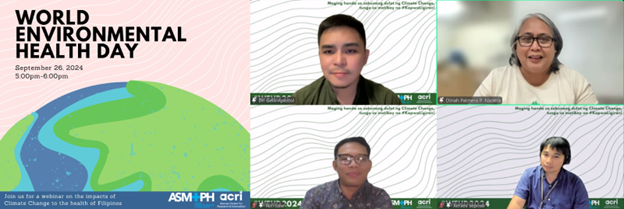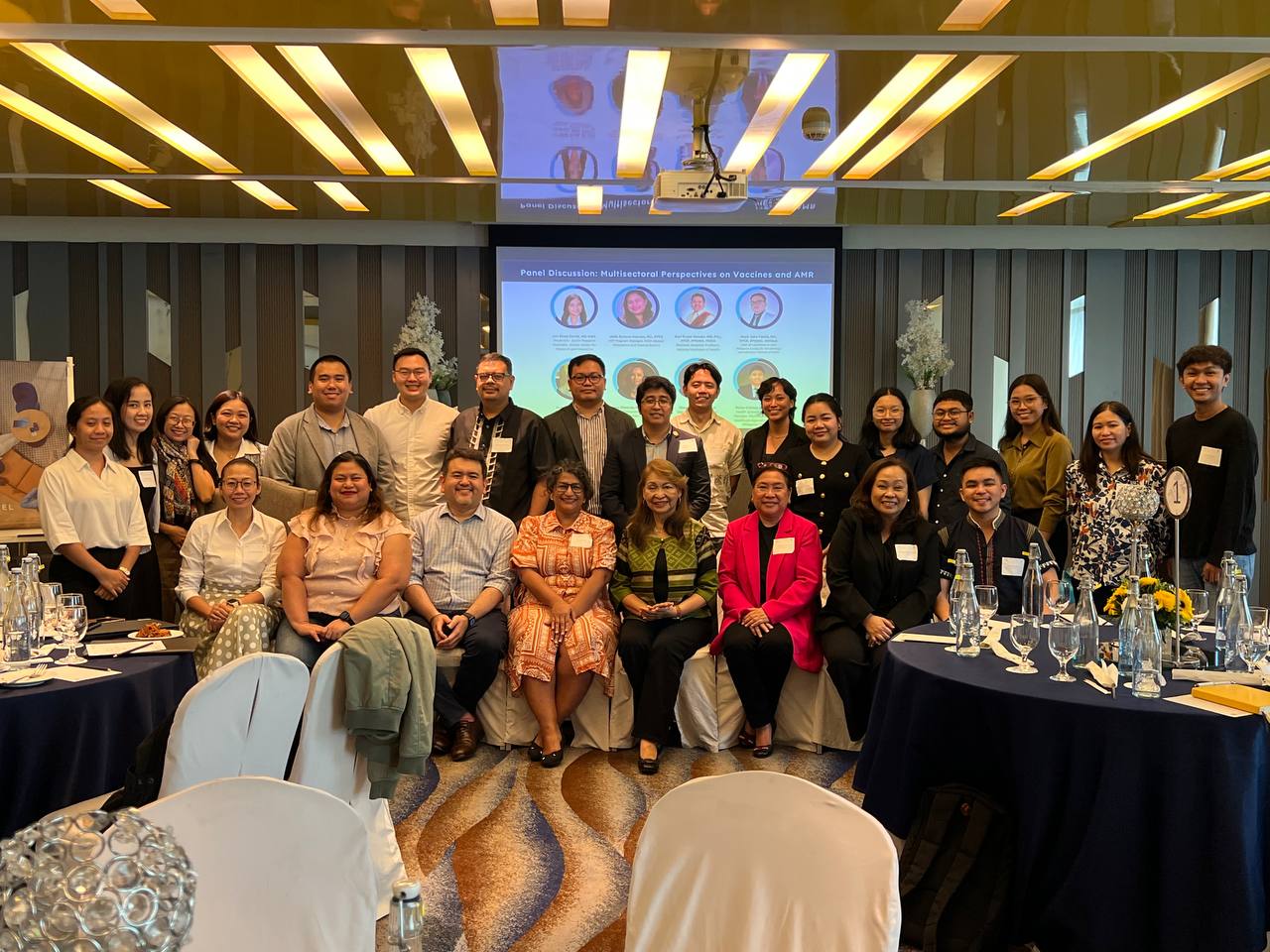
Climate Change and Filipino Health: ASMPH explores insights on World Environmental Health Day
Leading health experts gathered for a World Environmental Health Day webinar organized by the Environmental Health and Global Health Security Flagship Program of the Ateneo School of Medicine and Public Health Center for Research and Innovation (ACRI), exploring how to build stronger communities in the face of climate change. Held on the 15th anniversary of Tropical Storm Ondoy, the event served as a timely reminder of the ongoing challenges posed by extreme weather.
Insights from Experts
Dr. Xerxes Seposo discusses how climate change directly and indirectly affects human health.
Dr. Xerxes Seposo presented compelling research showing a clear connection between rising temperatures and increasing dengue cases in the Philippines. He explained that if we don't act now, the health and financial costs could skyrocket by 2050. Dr. Seposo emphasized that we already have the climate data needed to make smarter decisions about our health strategies – we just need to use it effectively.
Drawing from her field experience, psychiatrist Dr. Dinah Palmera P. Nadera shared powerful insights from her research during a severe drought in Mindanao. She described how climate disasters trigger a range of mental health challenges that often go unnoticed, from heightened community tension to individual anxiety and depression. Dr. Nadera introduced emerging concepts like "ecological grief" and "eco-anxiety," highlighting the deep psychological impact of environmental changes on communities.
Representing the Department of Health, Dr. Ronald Law shared crucial updates on government initiatives to strengthen our health systems against climate challenges. With the Philippines ranking first in climate risk for the third straight year, Dr. Law outlined the DOH's comprehensive approach to making health facilities more sustainable and resilient, emphasizing that these improvements are essential for protecting community health as extreme weather events become more common.
Fostering Dialogue and Encouraging Action
Dr. Dinah Nadera emphasizes the crucial link between environmental health and community mental well-being.
The webinar concluded with a unified call for action: we need more locally trained researchers focusing on climate change and health, stronger health literacy in our schools, and better collaboration across all sectors. As Dr. Law noted, these aren't typical health challenges – they require new ways of thinking and working together.
This World Environmental Health Day event is part of ACRI's ongoing effort to educate and involve the community in environmental health issues. For more information about ACRI's Environmental Health Flagship Program and future events, visit https://www.acri.ph/.
-

The Unseen Link: Vaccines and Antimicrobial Resistance in the Philippine Context
Antimicrobial resistance is already claiming lives, and the global pipeline for new antibiotics is shrinking. In August 2025, experts gathered to explore a critical question: Can vaccines become a frontline weapon against AMR? The science is clear—by preventing infections, vaccines reduce antibiotic use and slow resistance. But translating this into action means confronting data gaps, political barriers, and financing challenges. As one expert noted: "When we vaccinate, we reduce the frequency of these diseases. That means fewer antibiotics—used and misused." With no country in the Global South yet integrating vaccines systematically into AMR strategies, the Philippines has a chance to lead—if stakeholders can move from consensus to action.
-

Advancing vaccine uptake to mitigate antimicrobial resistance (AMR) in low and middle-income countries of South or South-East Asia
This project explores how strengthening vaccine uptake can serve as a key strategy to mitigate antimicrobial resistance (AMR) in the Philippines and across South and South-East Asia. By reducing the burden of vaccine-preventable diseases and the unnecessary use of antibiotics, the study aims to provide actionable recommendations for national and institutional stakeholders to better integrate vaccination initiatives into AMR control efforts, ultimately contributing to stronger, more resilient health systems.
